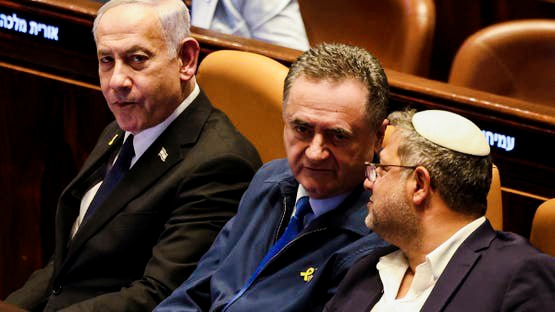In a new development amidst ongoing negotiations for a ceasefire in the Gaza Strip, Hamas informed Egyptian and Qatari mediators on Monday evening of its approval of a new proposal that includes a 60-day truce, along with the release of Israeli prisoners in two batches.
However, the political scene within Israel is witnessing sharp divisions that burden Benjamin Netanyahu's government, which appears hesitant between rejecting a partial deal under pressure from his far-right allies and the possibility of accepting it if requested by U.S. President Donald Trump, according to informed Israeli sources.
Far-right ministers, led by Finance Minister Bezalel Smotrich and National Security Minister Itamar Ben Gvir, have clearly expressed their rejection of any partial agreement.
Smotrich accused Netanyahu's leadership of "weakness," asserting that "there is no room to stop halfway," while Ben Gvir emphasized the necessity of rejecting temporary solutions that do not achieve the full goal.
Additionally, Settlement Minister Orit Strook confirmed via the "X" platform that the era of partial agreements that caused "severe damage" has ended, while Minister of Negev and Galilee Affairs Itzhak Wasserlauf insisted on the need to reach a comprehensive agreement.
In contrast, voices within the government are leaning towards flexibility, notably Foreign Minister Gideon Sa'ar and head of the "Shas" party Ariel Deri, who expressed a willingness to discuss a partial agreement that could lead to the release of half of the Israeli prisoners held in Gaza.
Amidst these divisions, protests by the families of prisoners continue in Tel Aviv, demanding the government to move forward with an agreement that stops the fire and returns their loved ones safely.
A Palestinian source familiar with the matter confirmed to AFP that mediators provided Hamas and Palestinian factions with "guarantees" for the implementation of the agreement, with a commitment to resume negotiations later to reach a permanent solution.
It is noted that about 20 Israeli prisoners are still alive in the sector, while around 30 others have died.
For its part, Israel has been holding thousands of Palestinian prisoners in its jails for years.

